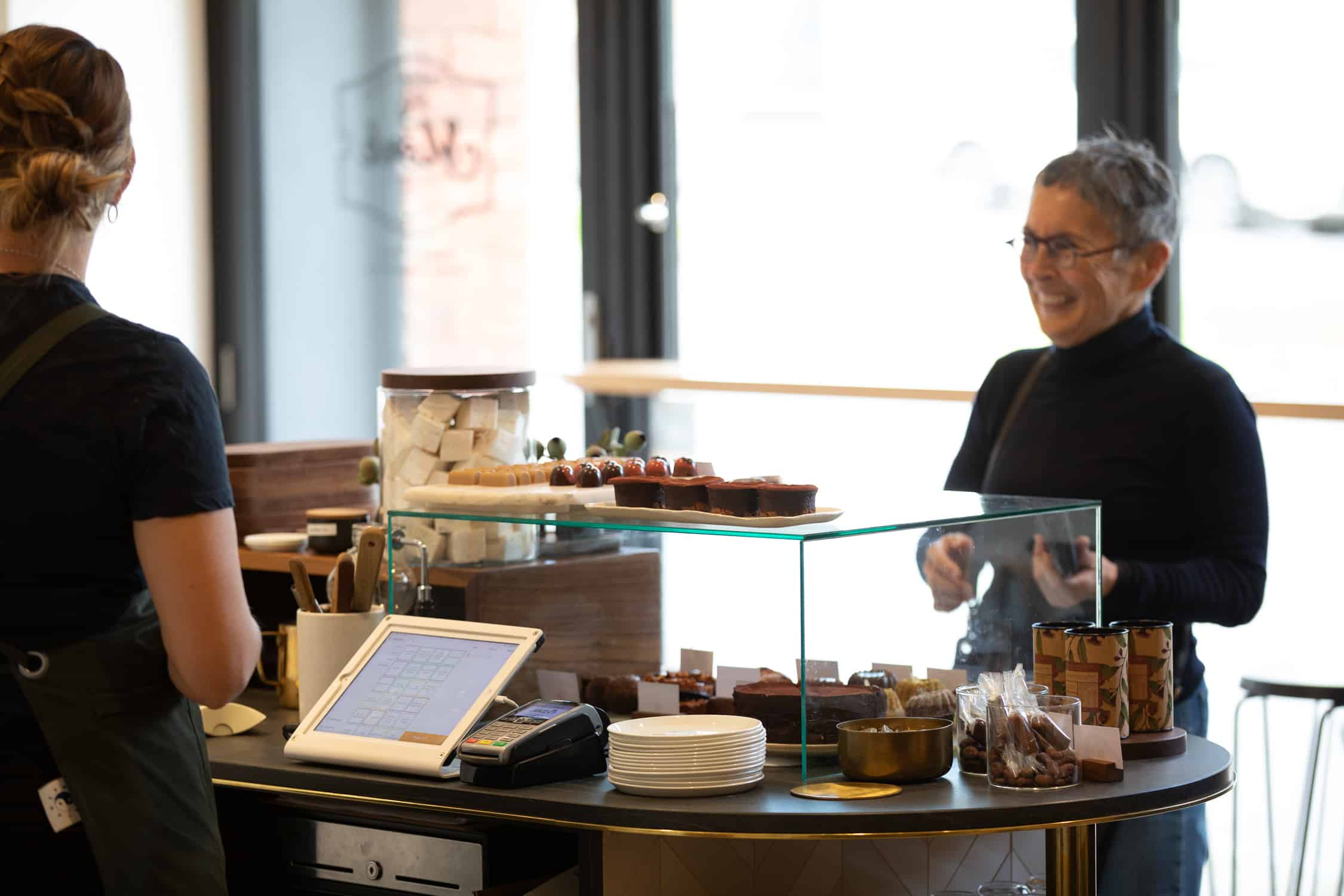
Australians love their coffee. We spend over $1 billion dollars on it every year. It is a morning ritual and unavoidable start to the day for millions.
Our unrequited love-affair with all things caffeine has seen a 300% increase in the number of cafes in less than a decade. Cafes are everywhere, and the great Australian dream once focused on owning our own home, seems to have shifted to owning our own cafe!
How to open a cafe
Before rushing off to do a barista course, or spending hours researching the next artisanal coffee trend, here are 8 things to consider when taking the ‘plunge’.
- 1. What do you want to achieve?
- 2. How much time are you prepared to invest in your business?
- 3. How much money can you invest?
- 4. What experience do you have in running a business?
- 5. Do you start a cafe from scratch, or buy an existing cafe?
- 6. Do you have a business plan?
- 7. What’s your cafe’s concept or theme?
- 8. Nail the ordering process
1. What do you want to achieve?
A hospitality business requires time and focus, and one of the first things you should consider is: what does the reality look like? Once you open a cafe you’ll no longer be earning a paycheck from someone else. Running a cafe isn’t a simple Monday to Friday, 9-5 job, regardless of the opening hours. Setting out realistic expectations and understanding exactly what you want to achieve, before you even open your doors, is the best way to prepare your business for success.
A key predictor of success for any hospitality business is the hands-on nature of ownership. If, as an owner, you work in the business you are more likely to succeed than if you do not. However, the pressure to meet family and other external obligations can often be a reason why a business begins to fail.
Ask yourself these questions:
- What does success mean to you, specifically?
- Is opening a cafe an an investment decision?
- If so, are you investing money into a cafe with an expectation of a financial return? How much return?
- Do you have an exit strategy?
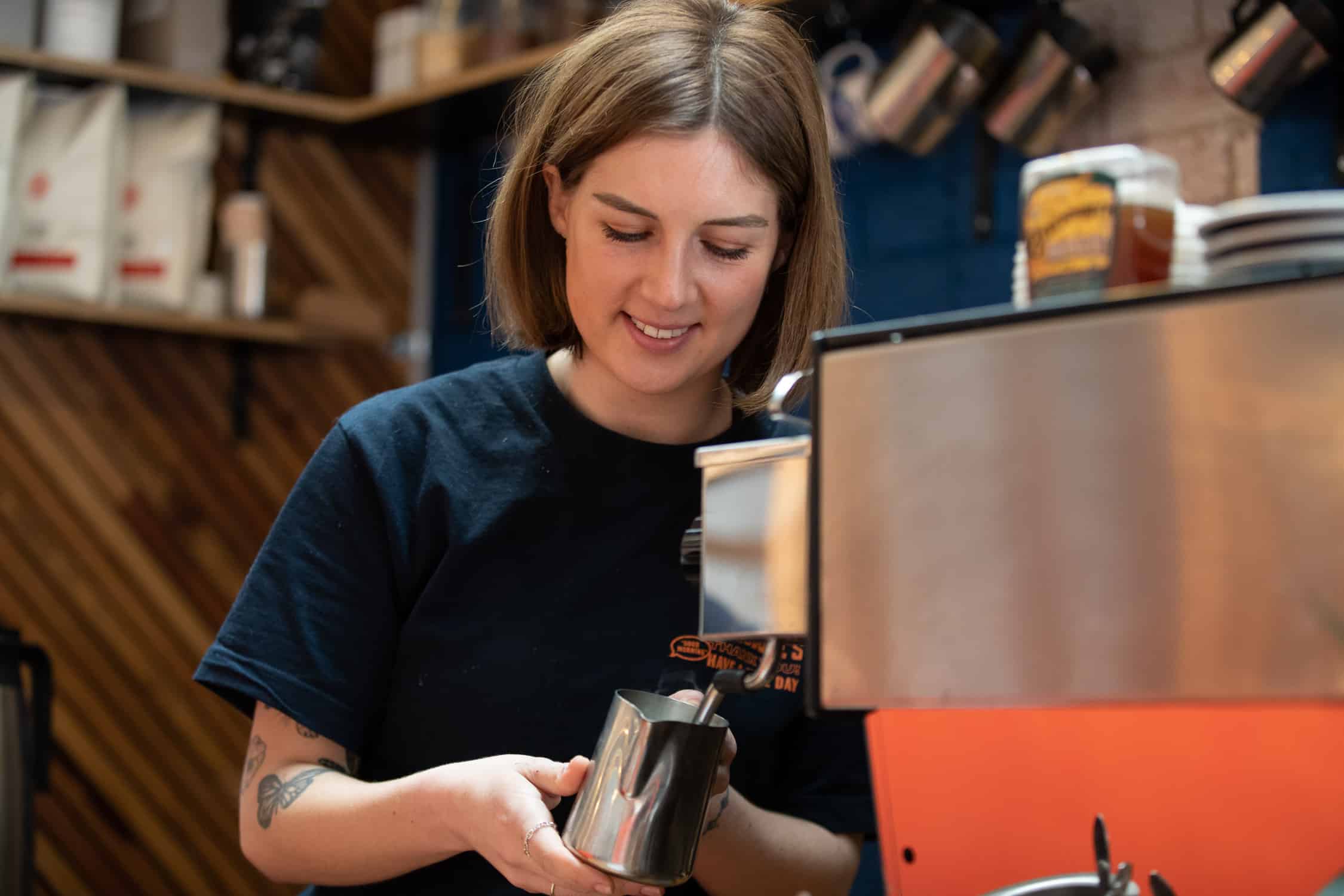
2. How much time are you prepared to invest in your business?
- What lifestyle do you want to live?
- Do you have time commitments outside of running a business that might prevent you from being successful?
Deciding what you want and how much time you have available can also impact the size of the business you want to own. A small Monday to Friday business may be cheaper to purchase or establish, but the revenue may be significantly less. On the other hand, a larger business may need a larger upfront investment, but would be able to support a manager, offering greater flexibility.
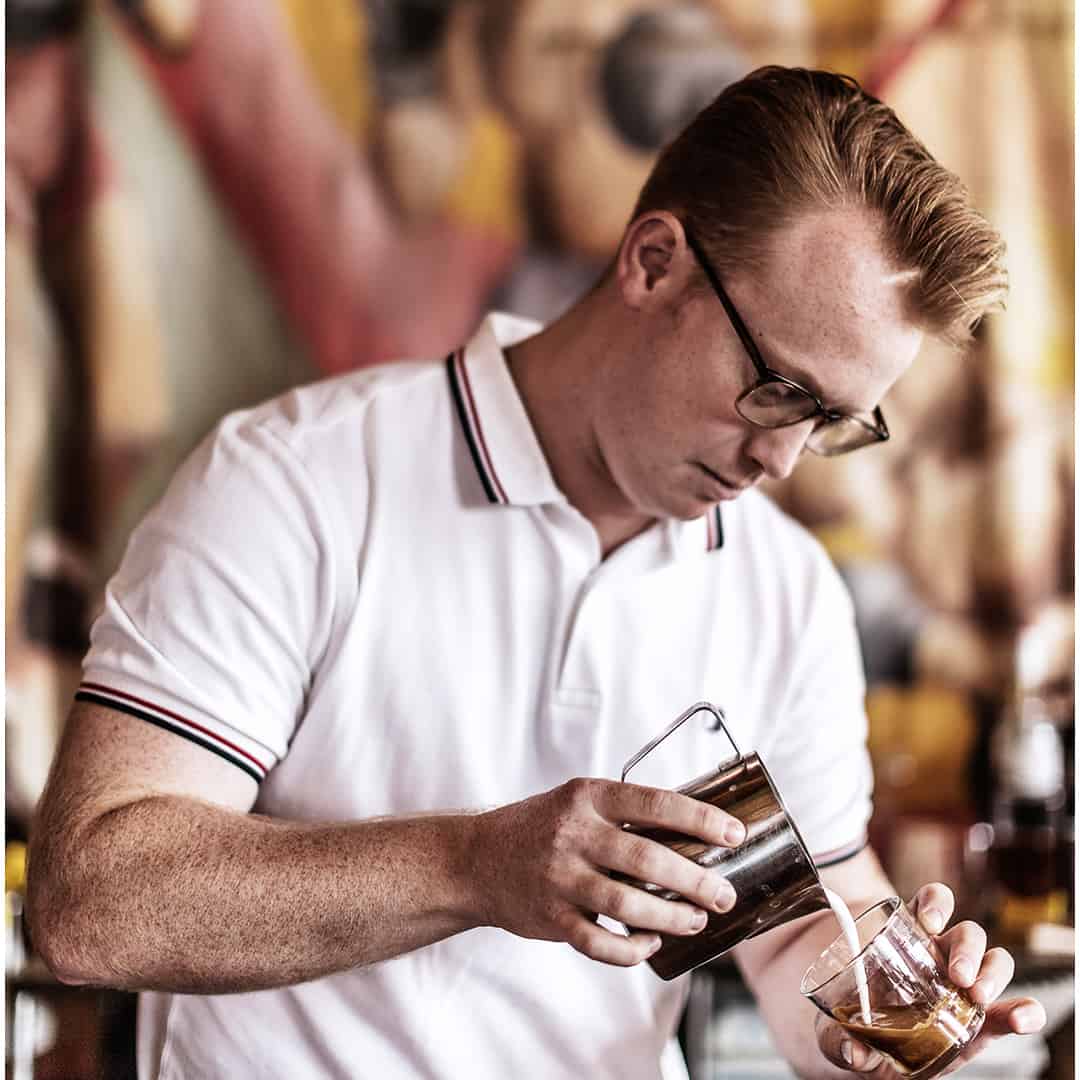
3. How much money can you invest?
No matter if you’re starting from scratch or purchasing an existing cafe you’re going to require a significant amount of upfront capital. Even after you’ve opened your doors you’ll still need to supply a cash flow for the first year of trading. So it’s important to ask: what financial resources do you have at your disposal?
It takes time to understand the nuances of a new business. This will inevitably cost money as owners and managers understand how to be efficient in meeting the demands of their business.
Also, businesses with significant amounts of debt are much more likely to fail than businesses with lower levels of debt. Shortages of capital can often lead to short-term decisions that are detrimental to the business in the long-term. It may be better to own a smaller business with less financial leverage, or to raise more funds, than stretching to a bigger business that you may struggle to afford.
A cafe can also require a large upfront investment in stock, and new businesses rarely have favourable terms with their suppliers.
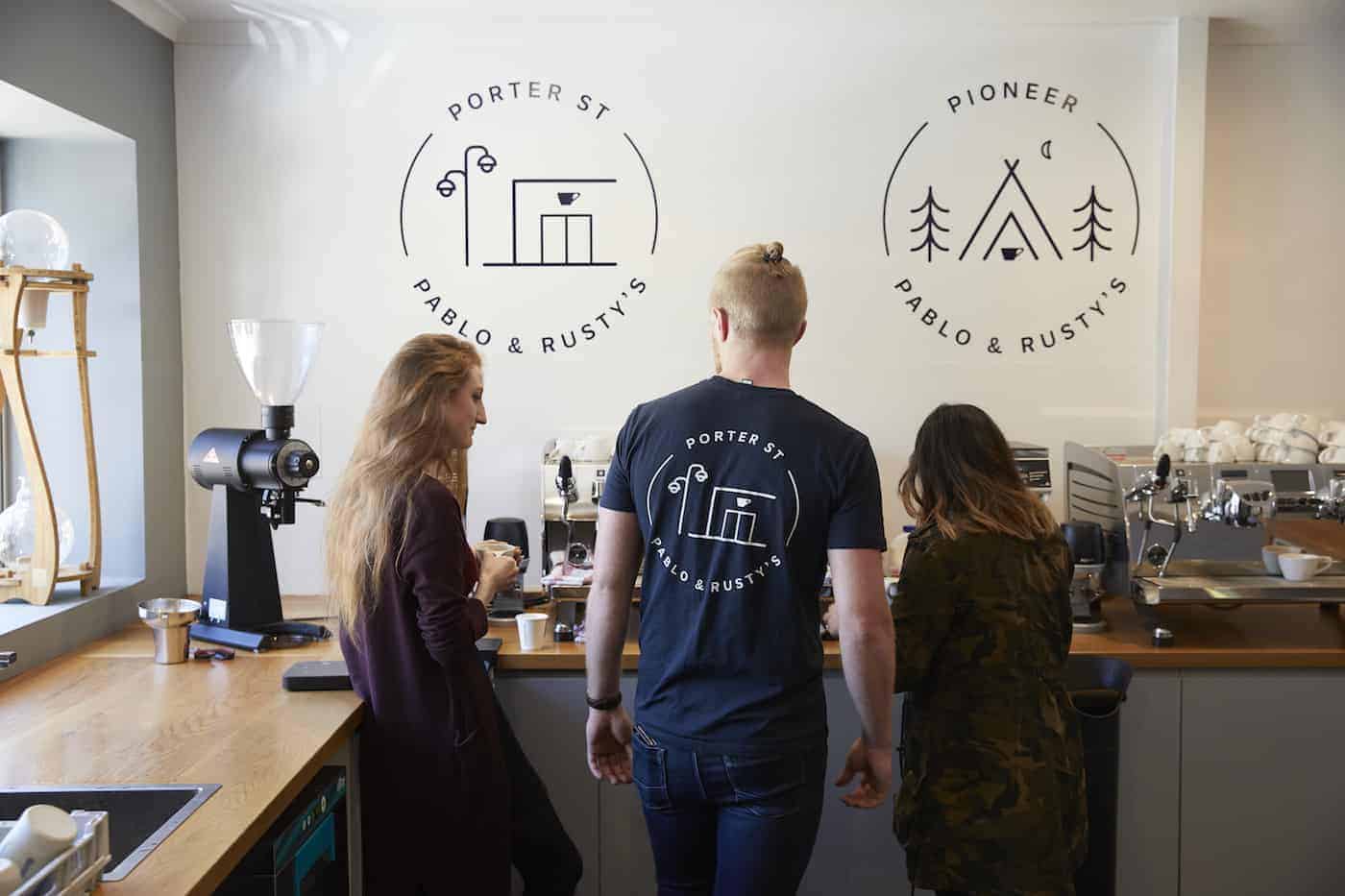
4. What experience do you have in running a business?
An owners strengths and weaknesses become those of the business they own. Managerial inadequacy, incompetence, inefficiency, and inexperience are a consistent theme when explaining failures in business, and they all come back to the owner.
Have you managed a business before? Experience in hospitality would be beneficial, but alone it is not enough. A café is a complex business, and an owner needs to be across obvious things like managing staff and delivering quality food and service, but this can be the tip of the iceberg of what you need to know.
Things like Food Safety and Workplace Health and Safety, GST, Pay As You Go (PAYG), BAS and Superannuation, Fair Work legislation and Privacy legislation, Anti-bullying laws and more are crucial to the operation of your business.
A successful owner can begin to upskill in these areas before even opening the doors.
5. Do you start a cafe from scratch, or buy an existing cafe?
- What are the legal requirements of running your business, and how familiar are you with them?
- What can you learn before purchasing or starting a business?
There are over 20,000 cafes in Australia, and with 50% of businesses either closing or going up for sale by their 4th birthday, there will always be businesses to buy.
This is a key decision for a new owner; do you buy an existing business with existing infrastructure or start a business from scratch?
Both propositions have merit but are wildly different in their execution. An existing business may have the perfect location with a great quality fit-out and high end equipment. But, it may also have poor lease terms and the area’s demographic may not suit the business.
Even the state of the broader economy can impact on the decision. For example, franchise businesses tend to do better than independently owned businesses when the economy is doing poorly. Franchise systems can provide support through the crucial first year of a businesses life but offer little choice in terms of technology or suppliers, and the value of the support they provide diminishes over time, but the franchise fees do not.
An independent business has greater flexibility in how it operates, where it buys its supplies from and how much it, pays for example. It also has the ability to change quickly and drastically if it needs to. However, a higher level of management expertise is required to implement the processes and controls to be successful, whereas a franchise comes with the support to put them in place.
6. Do you have a business plan?
“By failing to prepare, you are preparing to fail” is as true today as it was over 200 years ago. A business plan is at the heart of every business, and it is especially relevant to a café.
A business plan can be completed with information readily accessible on the internet, and it’s easily to find templates online that lay out the types of information you need.
Cafes fail more often in postcodes where cafes are concentrated, and food businesses can succeed or fail based upon the demographics of the local area.
Both of these crucial bits of information are readily available from the Australian Bureau of Statistics; it can tell you exactly how many businesses, of each type, are in each postcode, has a year on year comparison of opening and closings (which can tell you how an area is performing). You can also find comprehensive demographic data, such as the composition of households (how many people are married, or single, or have children), the professional and educational makeup of the area, even the average weekly earnings per household.
It is also relatively simple to compile a competitive analysis for your chosen area. Who are your competitors, what do they do well, why do customers go to them? It’s also important to consider what opportunities exist within the marketplace, who are your customers and where will they come from?
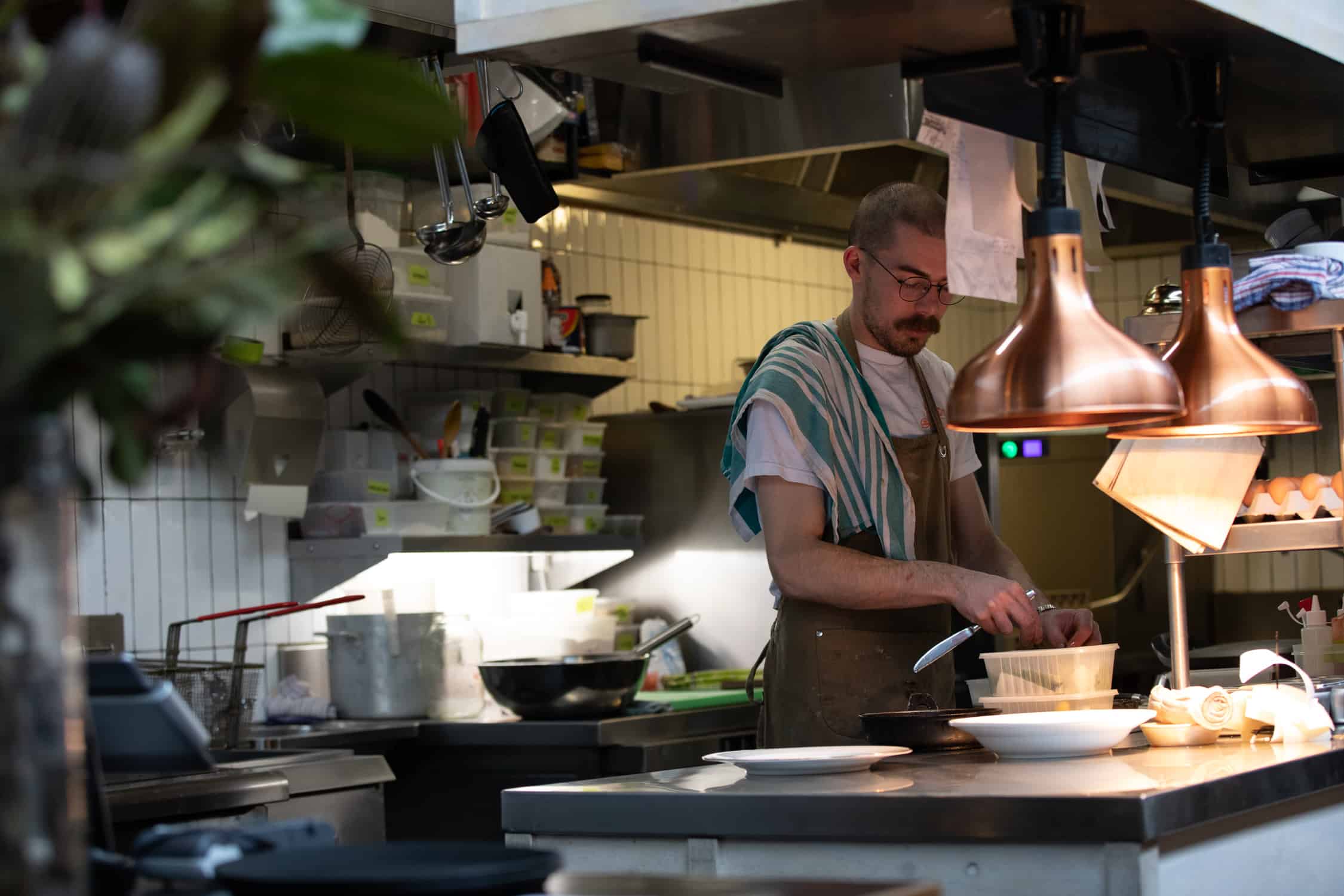
7. What is your cafe’s concept or theme?
Having a clear and focused ‘concept’ is a key ingredient for success in food and beverage businesses. A cafe’s concept informs every decision and encapsulates the positioning of the food and beverage, the service standard and style (whether it is table-service, or order at the counter, or order via tablet or smartphone), even the fit-out and marketing.
The concept tells you whether food it is bought-in, made in-house, or a combination of both, it informs your staffing needs, and the layout of the café.
There is a huge variety of business models within the ‘café’ segment. Cafes can either be “quick-service”, where customers come and go frequently, and the business is orientated towards speed and efficiency. Or, the cafe can be “restaurant-like” where the average spend is maximised, food is a crucial ingredient of the product mix, and opening hours may include weekends and evenings.
The concept tells you what should be on the menu, how the food will be prepared, by whom and informs the pricing strategy.
Information pertaining to your potential customers and competitors are the basis of market research; a core component of your business plan, which informs the choice of ‘concept’, or ‘theme’ of the business.
A differentiated concept, one that is sufficiently different from the competition, and oriented towards the customers wants and needs, succeeds much more often than one that is not.
8 . What are your key numbers?
- How much money does your Café need to earn each week to be profitable?
- What are your lease terms?
A cafes success is often strongly influenced by the decisions that are taken before the doors even open. The lease especially can be a predictor of success or failure. If your lease is too high the business can be encumbered to a point that profitability is difficult.
To be successful in a cafe, the monthly revenue should exceed the annual lease. When assessing a lease, you can work backwards, such as in the below example:
Patrice has been working on her business plan for 18 months. She knows her concept and has a good idea of the menu price and types of dishes and drinks she wants to serve. Patrice is considering a lease at a new development in an area she has identified as her preferred location.
The proposed lease is $120,000 per year.
To be successful, Patrice calculates her café needs to earn $120,000 per month, or $27,713.63 per week (dividing $120,000 by 4.33 weeks).
Patrice’s Business Plan outlines operating hours from 6:00 am to 4:00 pm, Monday to Sunday. Her café is positioned like a traditional Café; more QSR than restaurant. A lot of smaller transactions, with customers taking their purchases away, or sitting for only a short duration at the tables. Food is expected to be a significant portion of the revenue, but it is grab-and-go and designed to be prepared by Front of House staff rotated into the kitchen, without a qualified chef present.
Traditional Cafes, like QSR, tend to have revenue more evenly spread across the week, than a dominant Friday and Saturday that can account for 50% of weekly revenue, with the majority of revenue occurring between 11.00 am and 2.00 pm. The exception being Sunday; Patrice plans on her Sunday breakfast and brunch being the centre-piece of her week.
Patrice forecasts that her average check will be less than $12.50 per person after GST.
Based upon the revenue her café needs to earn, she would need to complete over 2,200 transactions per week, the majority happening in just three hours a day, to meet her required ROI.
Patrice decides not to proceed with the lease and instead looks to purchase a cafe with a more reasonable lease in place, which she will seek to renegotiate through her leasing specialist lawyer if she can arrive at the right purchase price.
Patrice knows that the average expenses for a cafe or Restaurant in Australia, including the lease, are 28% of total revenue, and the average profit is just two per cent. Her business model details an ROI of eight per cent or more, and every decision she makes is in line with this plan.
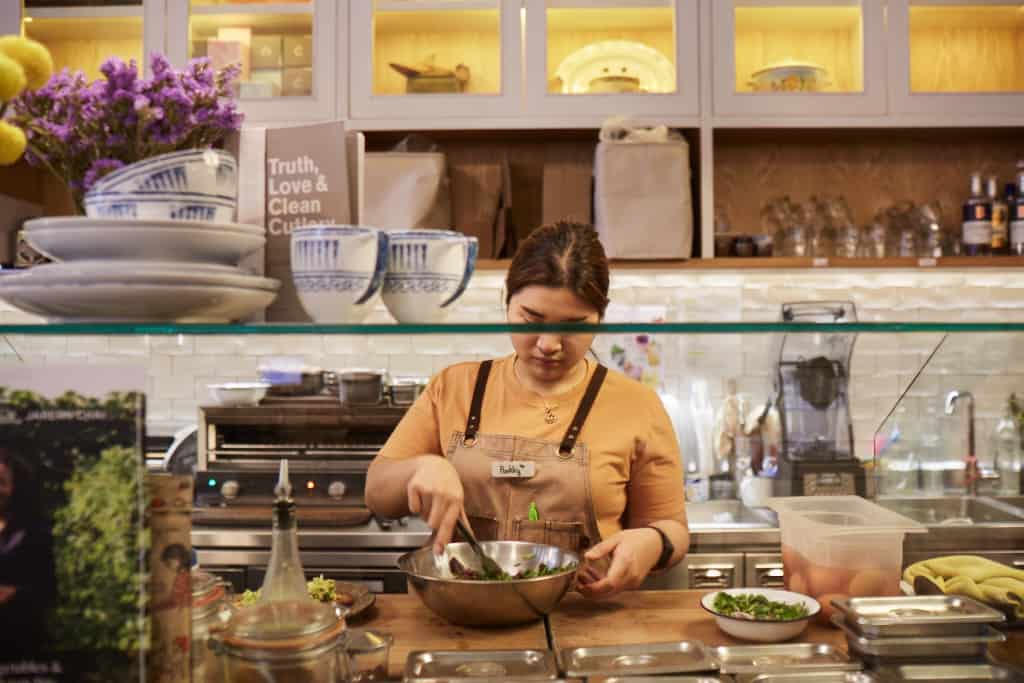
Conclusion
Owning a cafe is a dream for many Australians; it is an energetic, high-intensity and enjoyable environment that can be fun and addictive. It is also a business environment that is more complex than most. Owning a cafe can be highly competitive, half of the businesses fail after four years, and 40% of businesses don’t make any profit in a given year.
Whilst there can be no guarantee of success in business, many cafes fail because of decisions that were or were not made prior to opening the doors; poor planning, incomplete concepts, poor locations or too high rent, amongst others.
Often owners become unwilling to meet the extraordinary time commitment that their businesses require or their passion for their business eventually wains, or they don’t possess the range of skills required and their first years’ operation becomes too large a hole to crawl out from.
But by answering these 8 key questions a potential business owner can understand how to open a cafe. They can choose to proceed, purposely designing a high ROI business, or not, potentially saving hundreds of thousands of dollars.
What will you do?

News you care about. Tips you can use.
Everything your business needs to grow, delivered straight to your inbox.



